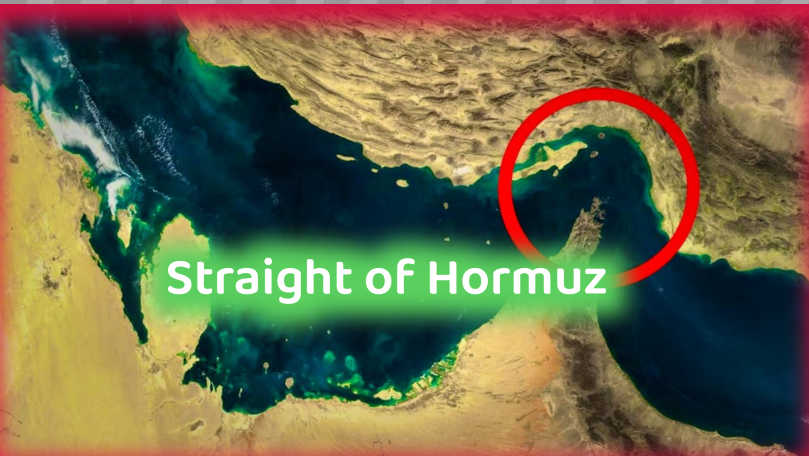Iran’s move to block the Strait of Hormuz in 2025 could change global oil dynamics and geopolitical equations. Explore how this impacts India, Tehran, and global powers in four comprehensive points.
Introduction
In a bold and unprecedented escalation, Iran has announced measures to block the Strait of Hormuz—a narrow waterway that serves as the world’s most critical oil chokepoint. Though threats have loomed for decades, this is the first time Tehran has taken direct action. The move comes amid heightened tensions with Western powers and internal economic pressures, raising alarms across Asia, Europe, and America.
But what does this really mean? Why is Hormuz so important, and how will this action shake economies, diplomacy, and global security? Let’s break it down into four powerful, easy-to-understand points.
1. Why Is the Strait of Hormuz So Critical?
The Strait of Hormuz, just 21 miles wide at its narrowest point, connects the Persian Gulf to the Arabian Sea. Despite its size, nearly 20% of the world’s oil passes through this route, making it the heartbeat of global energy trade. That’s roughly 17 to 18 million barrels of oil every day, much of it bound for Asia—especially India, China, Japan, and South Korea.
If the Strait is blocked:
- Oil tankers can’t pass through.
- Global oil prices could skyrocket.
- Even countries with no direct ties to Iran would feel the economic shockwaves.
In short, it’s like blocking the main artery of the global oil system. And that’s why the world watches it so closely—any threat to Hormuz is a threat to global energy security.
2. What Prompted Iran to Make This Move Now?
Iran has issued such threats in the past, but never actually blocked the Strait—not during the Iran-Iraq War, not even when the US killed General Qasem Soleimani in 2020. So, why now?
There are three major reasons:
- US-Israel Pressure: Recent Israeli strikes in Syria and alleged sabotage inside Iran have pushed Tehran to the edge. The U.S. has expanded its military presence in the region, tightening sanctions, and blocking Iranian oil revenue channels.
- Economic Desperation: With inflation soaring past 50%, a weakening rial, and increasing domestic unrest, Iran’s leadership is under pressure to project strength. Blocking Hormuz might be a calculated high-stakes gamble to draw global attention.
- Message to Allies and Rivals: Iran wants to remind the world—and especially Gulf rivals like Saudi Arabia and the UAE—that it can still shake the energy world when pushed too far. This is a warning, not just to Washington, but to the entire global community.
Iran seems to believe that the global cost of blocking Hormuz might force world powers to negotiate, especially as the 2025 U.S. elections approach.
3. How Will This Affect India and the Rest of Asia?
India imports nearly 85% of its crude oil, and a major chunk comes from the Gulf region—through the Strait of Hormuz. If that supply is disrupted, India’s economy could face serious trouble:
- Fuel Prices May Spike: Petrol and diesel costs could shoot up by ₹15–20 per litre within weeks.
- Inflation Surge: Transport, food, and electricity costs would all rise.
- Trade Disruptions: India’s exports and imports through Gulf routes could be delayed or rerouted, increasing shipping costs.
- Diplomatic Dilemma: India maintains close ties with both the U.S. and Iran. This crisis might force India to take sides, which it has historically avoided.
Other Asian economies—Japan, South Korea, and especially China—would face similar oil price and trade disruptions. Many of these nations are already battling post-pandemic inflation, and Hormuz tensions could derail their fragile recovery paths.
4. What Comes Next: War, Diplomacy, or Economic Collapse?
While Iran’s announcement to block the Strait is significant, it doesn’t mean it’s irreversible or permanent. Experts believe Tehran could be using the Strait as leverage—a bargaining chip to extract concessions.
However, three possible outcomes could emerge:
- Diplomatic Talks Resume: If backdoor channels reopen between Iran and Western powers, Iran might reverse its blockade in exchange for sanctions relief or security guarantees.
- Limited Military Response: The U.S. Fifth Fleet, based in Bahrain, might take action to clear the strait—triggering short-term skirmishes but avoiding full-blown war.
- Full-Scale Escalation: If Iran mines the waters or targets commercial tankers, retaliation could follow, possibly drawing the entire Gulf into conflict.
In all these cases, the global economy will remain on edge, and markets will respond with volatility. Whether it’s oil prices, stock indexes, or currency markets—the ripple effects will be felt worldwide.
Summary
Iran’s move to block the Strait of Hormuz in 2025 is more than just a regional spat—it’s a global crisis in the making. While the action may still be reversible, the world is now reminded of how fragile global energy supply chains really are.
For India, the challenge will be to protect its energy interests without alienating either side. For Iran, it’s a dangerous gamble born out of desperation. And for the world, it’s yet another reminder that energy security and peace are deeply intertwined.
As the tension builds, diplomacy must return before the Strait becomes not just a chokepoint—but a flashpoint.

